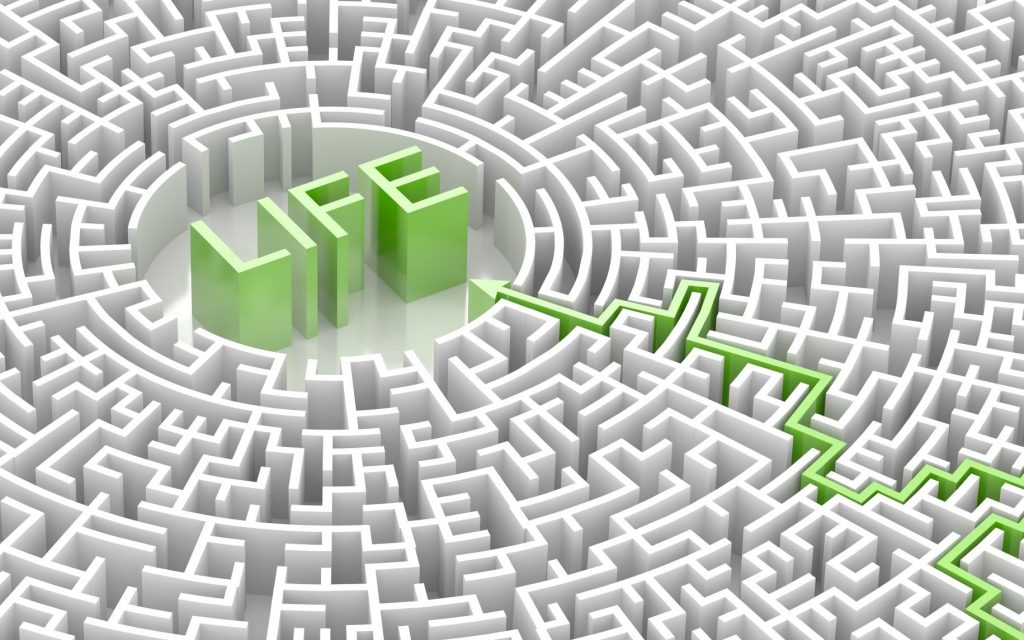
When teens face trouble, especially with substance or self-abuse, the barriers to help can be especially significant. There might be a natural reluctance to reach out to the “adult world,” or avoidance of issues that seem unsolvable, perhaps because of teen tendencies for thinking in extremes. Many teens get stuck in negative downward spirals, leading to damaging consequences and emotional despair.
Luckily for those who have found it, SMART Recovery has become a growing solution to stopping negative behavior in the teen population. Teens relate to SMART’s stigma free and self-empowering approach.
This is in part due to people like Eboni Jewel Sears, who found the SMART Recovery program and volunteer their time to facilitate mutual support meetings in local communities around the country. Eboni is a facilitator for teens age 14-19 years old at Alternative Peer Group in Las Vegas. Through her efforts, she loves seeing the teens who attend her meetings grow using SMART’s tools focusing on self-esteem, unconditional acceptance of self, others, and life, and making good decisions.
“I think it’s really rewarding to be able to serve this community [and] show teens they’re the master of their own fate, and to empower them with the tools to do that…our main focus is to keep teens in recovery—no matter what we need to do, we do [and] fun things always help; you remember fun things more.“
To make learning the tools fun, Eboni uses activities like card games to bring SMART Recovery tools and content to life. She says it’s about exposing young people to helpful information consistently.
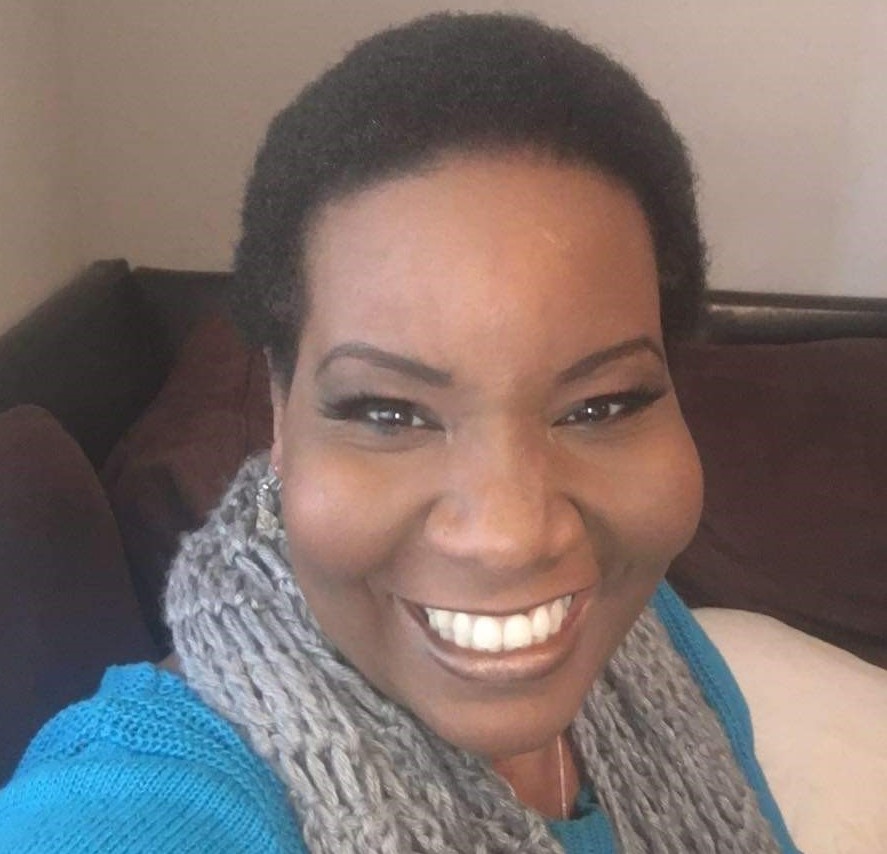
Eboni’s journey to SMART and her current strong affirmation of the principles and practices came after a long and winding road. Her military family moved a lot around the country, and she is a veteran herself, having served as a Navy Seabee. As far as work experience, she’s spent significant time as a long-haul truck driver and builder. For her, the facilitator training was a personal journey as well, providing an opportunity to be introspective, which was life-changing. As she continued to work on recovery, she came to believe that SMART was the best fit for her.
“I kept a lot of things to myself while in Navy, like being part of the LGBT community. In SMART, I was able to be myself, I just got to work on me and that’s exactly what I needed to do in the beginning. It was just very comforting and supportive.“
Her personal journey now includes becoming a minister, a decision about which she didn’t know how people would react.
“I wasn’t sure about how it would be received [but] no one has mentioned it or had a problem with it. For me I feel very accepted in the SMART community and always have.“
Help Us Reach More Teens and Youth In Need

As demonstrated in Eboni’s story, the ripple effect of impacting one life impacts others. It is because of individuals like Eboni, who experience SMART and then decide to use their time, energy, and resources to spread its self-empowering messages, that we are able to reach more and more people who need support.
Unfortunately, there are communities – and teens – across the country who still desperately need increased access to free, self-empowering, science-based mutual help groups. We are working to meet that need.
Your year-end gift to our Growth Fund will be put to work immediately, to help more people like Eboni and the teens in her meetings find the self-empowering recovery tools and peer support they need to overcome addiction and go on to live fulfilling and meaningful lives.
Additional Resources:
PLEASE NOTE BEFORE YOU COMMENT:
SMART Recovery welcomes comments on our blog posts—we enjoy hearing from you! In the interest of maintaining a respectful and safe community atmosphere, we ask that you adhere to the following guidelines when making or responding to others’ comments, regardless of your point of view. Thank you.
- Be kind in tone and intent.
- Be respectful in how you respond to opinions that are different than your own.
- Be brief and limit your comment to a maximum of 500 words.
- Be careful not to mention specific drug names.
- Be succinct in your descriptions, graphic details are not necessary.
- Be focused on the content of the blog post itself.
If you are interested in addiction recovery support, we encourage you to visit the SMART Recovery website.
IMPORTANT NOTE:
If you or someone you love is in great distress and considering self-harm, please call 911 for immediate help, or reach out to The National Suicide Prevention Hotline @ 800-273-8255, https://suicidepreventionlifeline.org/
We look forward to you joining the conversation!
*SMART Recovery reserves the right to not publish comments we consider outside our guidelines.*
Subscribe To Our Blog
Join our mailing list to receive the latest news and updates from the SMART Recovery Blog.
You have Successfully Subscribed!
Today marks the 33rd World AIDS Day. As we work to address the structural and social challenges that prevent many people from accessing both essential HIV services and addiction treatment, the HIV and addiction fields can learn from one another. Researchers, clinicians, and activists living and working at the intersection of HIV and substance use can shed light on reaching the most vulnerable groups with tailored, compassionate and quality care. This is crucial in ensuring that our national HIV response encompasses interventions that address the complex interactions between substance misuse and HIV.
One such group is the IDEA Exchange in Miami, Fla., a comprehensive syringe services program where Dr. Hansel E. Tookes, III, and his team work to deliver integrated HIV and harm reduction services to people who use drugs and those in recovery, and learn from research projects how to optimize care to achieve the best outcomes. Dr. Tookes is a 2021 recipient of NIDA’s HIV/AIDS Research Avenir Award for a new project designed to leverage telehealth-enhanced services to engage people who use drugs into HIV care in a city with the highest rate of new HIV cases in the country. This World AIDS Day, NIDA presents “At the Intersection: Stories of Research, Compassion, and HIV Services for People Who Use Drugs,” a web video series in which IDEA’s participants, peers, and clinicians relate their lifesaving approach to addressing the intertwined epidemics of HIV, overdose, and addiction.
Watch the new series below:
Note: nothing in this post should be considered clinically instructive or supervisory. Rather, I wanted to simply share an inspiration and my thoughts about it with others in our field.
Back in the early 2000’s, the organization where I worked joined the Network for the Improvement of Addiction Treatment (NIATx). For those that might not know, NIATx is a structured national effort to develop leadership in change management across the field of addiction treatment. We joined NIATx during Round 2 of the grant-funded portion of NIATx’s history.
One of the NIATx leadership principles is to borrow ideas from outside the field. As they summarize:
Principle 4: Get Ideas From Outside the Field. Developing innovative solutions to entrenched problems often requires looking beyond the boundaries of the familiar and shaking things up a bit. Looking at practices of other industries is a way to push beyond those boundaries.
To me, that encouragement applies to us as individual people, not just the systems within which we work and serve. And it is in that spirit that I offer this blog post.
I was educated in a strict, hard-science approach to psychology and a strong adherence to Cognitive-Behavioral Therapy. In more recent years I’m come to realize that for me that narrowness is a bit of an entrenched problem.
Just the other day I was listening to the famous painter Jackson Pollock describe his approach to painting. In the documentary film, he said:
My painting is direct. I usually paint on the floor. I enjoy working on a large canvas. I feel more at home, more at ease, in a big area. Having the canvas on the floor I feel nearer, more a part of the painting. Sometimes I use a brush but often prefer using a stick. Sometimes I pour the paint straight out of the can. I like to use a dripping, fluid paint. My method of painting is a natural growth out of a need. I want to express my feelings rather than illustrate them. Technique is just a means of arriving at a statement.
Readers from almost any profession who were taught early to have a strict allegiance to one way of thinking can probably imagine or feel the unusual kind of freedom Jackson Pollock is describing. And those of us who were educated in a hard-science approach to psychology or taught to show a rather rigid conformity to one specific school of therapy (like cognitive-behavioral therapy, for example) can certainly relate.
I was greatly inspired by what he said. And at this stage in my career, I like Pollock’s quote quite a bit.

Here are some thoughts I had about how that quote can apply to the professional part of our field:
Direct. To me this means his process is at least not made worse by the assumptions and methods that are installed by, or that result from, academic learning. And to me it means his work is not merely achieved by a careful and deliberate adherence to a pre-packaged form, content, or process. Rather, his method arises spontaneously from within him.
- I wonder if our professional help is creative enough when it needs to be.
On the floor. He adjusts the direction of the creative process. He recognizes that the space itself is an assumption that can be changed. Adjusting the space itself reveals he had a level of awareness of what would commonly be overlooked as too obvious.
- Can our counseling be like that? For example, simply going outdoors for a session has a potentially powerful impact.
A large canvas. During the documentary one commentator stated that Pollock wanted to work within a visual field that did not include the edges of the canvas. And in that way, Pollack made sure the work was not defined and confined by the edges of the physical material upon which the content was placed. This brings to mind my formulation of the analytic stance and the Change Process that I have shared previously at Recovery Review. In our work as addiction professionals:
- Can we suspend time, suspend the pressure to talk, and suspend the pressure to have the right answer – when we need to?
- Can we listen, take the time to think, and allow silence – when we need to?
More at ease in a big area. Bill White comments fairly extensively in his writings about the Ecology of Recovery.
- As addiction professionals, what of the Ecology of Counseling?
Floor…feel nearer…part of the painting. This makes me wonder if we as addiction professionals can:
- find and hold our most true and most conscious connection to the process as we help someone, and
- not be lost in the story that we hear or lost in our own thinking.
Pour the paint. To me the can of paint represents the reservoir of the unconscious. This reminds me of a comment from Howard Levine (an MD psychoanalyst) who said that sometimes it is better to make an enlivening countertransference mistake than to be technically correct, and yet “dead”, with the patient.
- I wonder if we as addiction professionals can be helpful, rather than frozen and stuck in our professional armor or initial training?
Natural growth out of need. I wonder if we as addiction professionals can:
- back up enough from our initial training, and
- exit enough of our own assumptions, to
- identify the simple and different need in each person, and respond accordingly and naturally?
Express vs Illustrate. Can we, as people, express ourselves authentically rather than present an “accurate” or desirable illustration of some part of ourselves?
A statement. What is it we want to convey?
- I wonder if we as addiction professionals can allow ourselves the sufficient silence to identify our statement in its finality, and then also construct and permit the spontaneous expression of it before we attempt to say it?
Hopefully someone might consider these inputs from both inside and outside the field beneficial in some way.
Suggested Reading
The Behavioral Health Recovery Management Statement of Principles
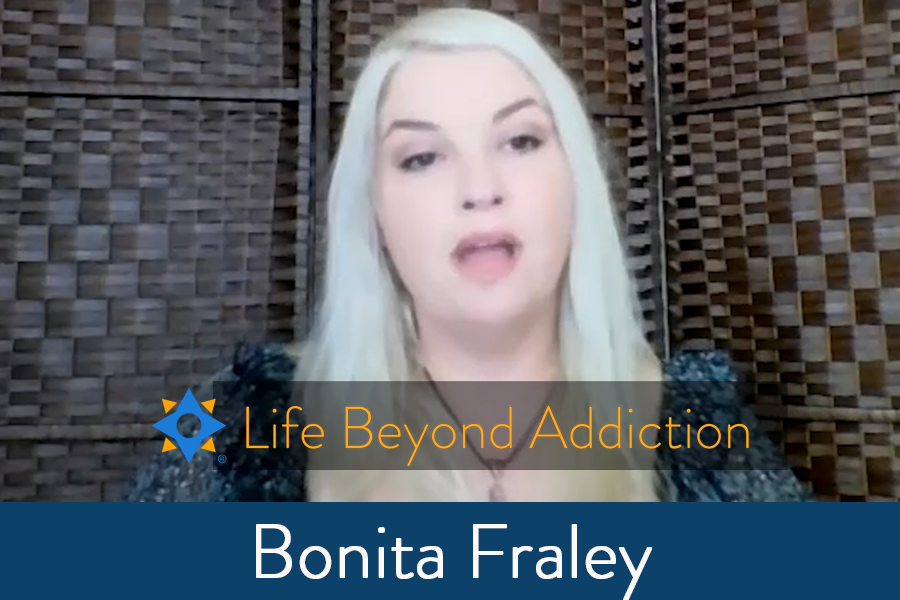
Hear Bonita’s amazing story of resilience and courage to succeed at recovery, and now provide support in the form of SMART Recovery meetings that she facilitates for people in Lima, Ohio.
Find Bonita’s meeting in Lima, Ohio.
Subscribe to the SMART Recovery YouTube Channel
Video storytelling is a powerful tool in recovery, and we are proud to share our SMART Recovery content free-of-charge, available anywhere, on any device. Our videos hope to inform, entertain, and inspire anyone in the recovery community.
Subscribe to our YouTube channel and be notified every time we release a new video.
PLEASE NOTE BEFORE YOU COMMENT:
SMART Recovery welcomes comments on our blog posts—we enjoy hearing from you! In the interest of maintaining a respectful and safe community atmosphere, we ask that you adhere to the following guidelines when making or responding to others’ comments, regardless of your point of view. Thank you.
- Be kind in tone and intent.
- Be respectful in how you respond to opinions that are different than your own.
- Be brief and limit your comment to a maximum of 500 words.
- Be careful not to mention specific drug names.
- Be succinct in your descriptions, graphic details are not necessary.
- Be focused on the content of the blog post itself.
If you are interested in addiction recovery support, we encourage you to visit the SMART Recovery website.
IMPORTANT NOTE:
If you or someone you love is in great distress and considering self-harm, please call 911 for immediate help, or reach out to The National Suicide Prevention Hotline @ 800-273-8255, https://suicidepreventionlifeline.org/
We look forward to you joining the conversation!
*SMART Recovery reserves the right to not publish comments we consider outside our guidelines.*
Subscribe To Our Blog
Join our mailing list to receive the latest news and updates from the SMART Recovery Blog.
You have Successfully Subscribed!
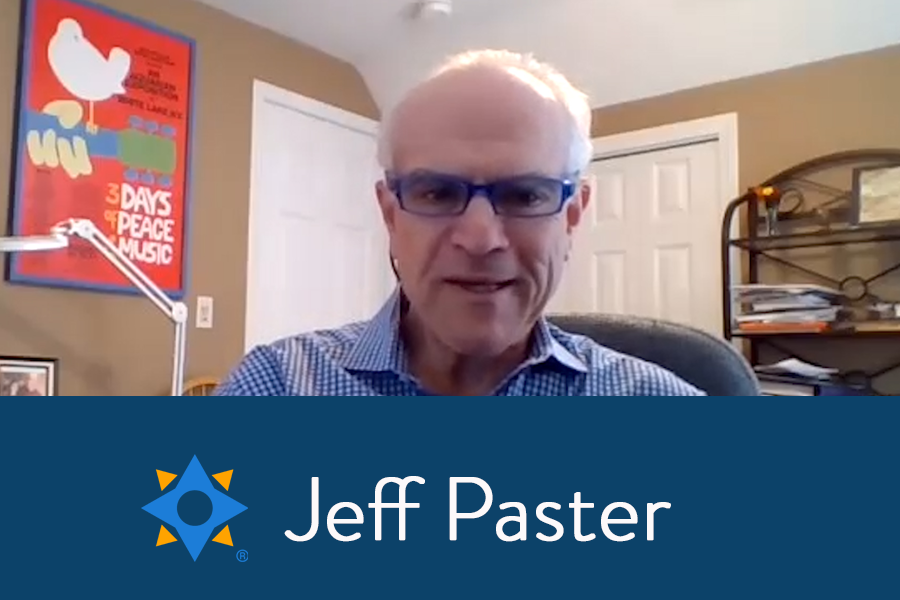
Hi Folks! I’m OboeJeff, a 69-year-old SMART Recovery member and facilitator. I came into SMART over five years ago with an acute substance use disorder and a long history of multiple substance use and maladaptive behaviors. I am married to a wonderfully tolerant and understanding woman, and am passionate about music, theater, art, hospice volunteer work, birding, hiking, our water garden and fishpond, and -over the period of the pandemic- volunteering at many vaccination clinics.
SMART Recovery has given me the opportunity to transform what had become a seriously dangerous and unhealthful life into much more of what I want for myself on this planet. Facilitation provides me with tremendous reinforcement of the power of the program, the meetings, the tools, and allows me the opportunity to provide service by giving back some of what I have learned and experienced to others who may be still struggling.
I hope you will consider trying at least 4-6 different SMART meetings if you are on the fence about the program, and I encourage you to find whatever path makes the most sense for you in your journey of recovery and transformation.
Learn more about becoming a SMART volunteer.
Find Jeff’s SMART Recovery Online (SROL) meeting.
Subscribe to the SMART Recovery YouTube Channel
Video storytelling is a powerful tool in recovery, and we are proud to share our SMART Recovery content free-of-charge, available anywhere, on any device. Our videos hope to inform, entertain, and inspire anyone in the recovery community.
Subscribe to our YouTube channel and be notified every time we release a new video.
PLEASE NOTE BEFORE YOU COMMENT:
SMART Recovery welcomes comments on our blog posts—we enjoy hearing from you! In the interest of maintaining a respectful and safe community atmosphere, we ask that you adhere to the following guidelines when making or responding to others’ comments, regardless of your point of view. Thank you.
- Be kind in tone and intent.
- Be respectful in how you respond to opinions that are different than your own.
- Be brief and limit your comment to a maximum of 500 words.
- Be careful not to mention specific drug names.
- Be succinct in your descriptions, graphic details are not necessary.
- Be focused on the content of the blog post itself.
If you are interested in addiction recovery support, we encourage you to visit the SMART Recovery website.
IMPORTANT NOTE:
If you or someone you love is in great distress and considering self-harm, please call 911 for immediate help, or reach out to The National Suicide Prevention Hotline @800-273-8255, https://suicidepreventionlifeline.org/
We look forward to you joining the conversation!
*SMART Recovery reserves the right to not publish comments we consider outside our guidelines.*
Subscribe To Our Blog
Join our mailing list to receive the latest news and updates from the SMART Recovery Blog.
You have Successfully Subscribed!
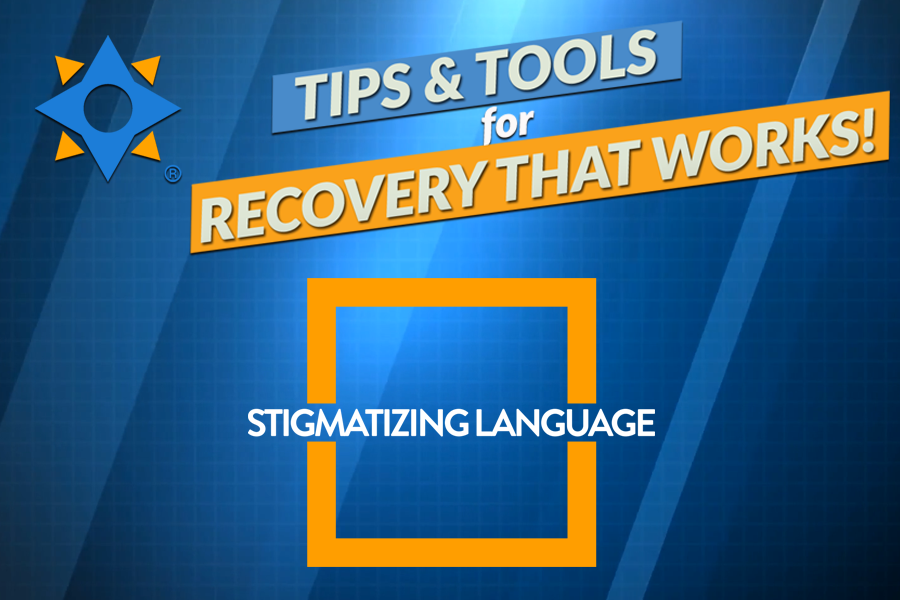
Words matter, which is why, in this episode of Tips & Tools, we discuss how stigmatizing language can negatively impact successful recovery.
Dr. Billina Shaw’s conference presentation
Dr. Richard Saitz’s conference presentation
Subscribe to the SMART Recovery YouTube Channel
Video storytelling is a powerful tool in recovery, and we are proud to share our SMART Recovery content free-of-charge, available anywhere, on any device. Our videos hope to inform, entertain, and inspire anyone in the recovery community.
Subscribe to our YouTube channel and be notified every time we release a new video.
PLEASE NOTE BEFORE YOU COMMENT:
SMART Recovery welcomes comments on our blog posts—we enjoy hearing from you! In the interest of maintaining a respectful and safe community atmosphere, we ask that you adhere to the following guidelines when making or responding to others’ comments, regardless of your point of view. Thank you.
- Be kind in tone and intent.
- Be respectful in how you respond to opinions that are different than your own.
- Be brief and limit your comment to a maximum of 500 words.
- Be careful not to mention specific drug names.
- Be succinct in your descriptions, graphic details are not necessary.
- Be focused on the content of the blog post itself.
If you are interested in addiction recovery support, we encourage you to visit the SMART Recovery website.
IMPORTANT NOTE:
If you or someone you love is in great distress and considering self-harm, please call 911 for immediate help, or reach out to The National Suicide Prevention Hotline @800-273-8255, https://suicidepreventionlifeline.org/
We look forward to you joining the conversation!
*SMART Recovery reserves the right to not publish comments we consider outside our guidelines.*
Subscribe To Our Blog
Join our mailing list to receive the latest news and updates from the SMART Recovery Blog.
You have Successfully Subscribed!
It was with immense sadness that I learned last week of the death of Paul Bowman. Paul was a peer recovery coach and advocate in Boston, Massachusetts, and was one of the leading voices for the HEALing Communities Study (HCS), which is testing ways to integrate various evidence-based practices to drastically reduce opioid overdose in 67 American localities. Paul was the national Steering Committee advisor for the Massachusetts arm of the study. His lived experience with recovery and addiction were central to his work, including his experience taking medication to treat his opioid use disorder, and it enriched his work with HCS. I extend my deepest sympathies to Paul’s family, colleagues, and everyone who knew and loved him.
.
Paul leaves behind an impressive legacy. As a social worker and activist in recovery, Paul devoted his life to fighting for the rights and dignity of people with substance use disorders in Boston. Paul advocated for greater access to medications to treat opioid use disorder, the use of naloxone to prevent overdose, harm-reduction measures to prevent other negative outcomes, and expanded access to housing. As a peer recovery coach, he guided many through treatment and recovery with encouragement and understanding. He was also tireless in his work to combat the devastating stigma that surrounds addiction.
Paul’s obituary shares more about his life, and reports his sudden death from a drug overdose. This news underscores how difficult the recovery journey can be and how essential compassionate, consistent support is at every stage. It should strengthen our resolve to support those with substance use disorders and to do everything we can to end this deadly crisis.
Families Need Recovery, Too

Substance Use Disorder affects one’s body, mind, and soul—but the damage doesn’t end there. Families and friends also suffer as their loved one’s dependency progresses, stress builds, and communication starts to break down. Families need to recover from the disease, too.
It is not uncommon for family members to feel imprisoned by this disease. As destructive, self-defeating behaviors increase, family members and those in active use alike shift into survival mode, in an attempt to make it through another day of ever-worsening problems.
As this process occurs, it becomes more difficult to have honest communication and maintain a sense of self. Intimacy and closeness are replaced by fear and loneliness. Family members focus on what they can do to control the situation and begin to accept their loved one’s responsibilities in an attempt to help. Dreams fade, resentment builds, trust disappears, and hope dims.
Sound familiar? If you’re a family member struggling with a loved one suffering from substance use disorder, here are some steps you can take now to begin your own recovery:
- Learn about the disease, including the effect it has had on family members.
- Take responsibility for your choices.
- Develop and set healthy boundaries.
- Allow, and respect, your loved ones need to take responsibility for their choices and actions.
- Accept your situation in an honest, realistic, and loving way.
- Reach out for help and learn from others’ experiences through community support networks like Al-Anon and Nar-Anon.
- Give yourself credit for slow, steady progress.
- Understand there are no quick fixes!
Many people have broken free from the isolation and oppression that substance use disorder can bring. Treatment centers, therapy, and community self-help groups offer opportunities to learn more about the disease, yourself, and how to live a more fulfilling life instead of just surviving.
About Fellowship Hall
Fellowship Hall is a 99-bed, private, not-for-profit alcohol and drug treatment center located on 120 tranquil acres in Greensboro, N.C. We provide treatment and evidence-based programs built upon the Twelve-Step model of recovery. We have been accredited by The Joint Commission since 1974 as a specialty hospital and are a member of the National Association of Addiction Treatment Providers. We are committed to providing exceptional, compassionate care to every individual we serve.
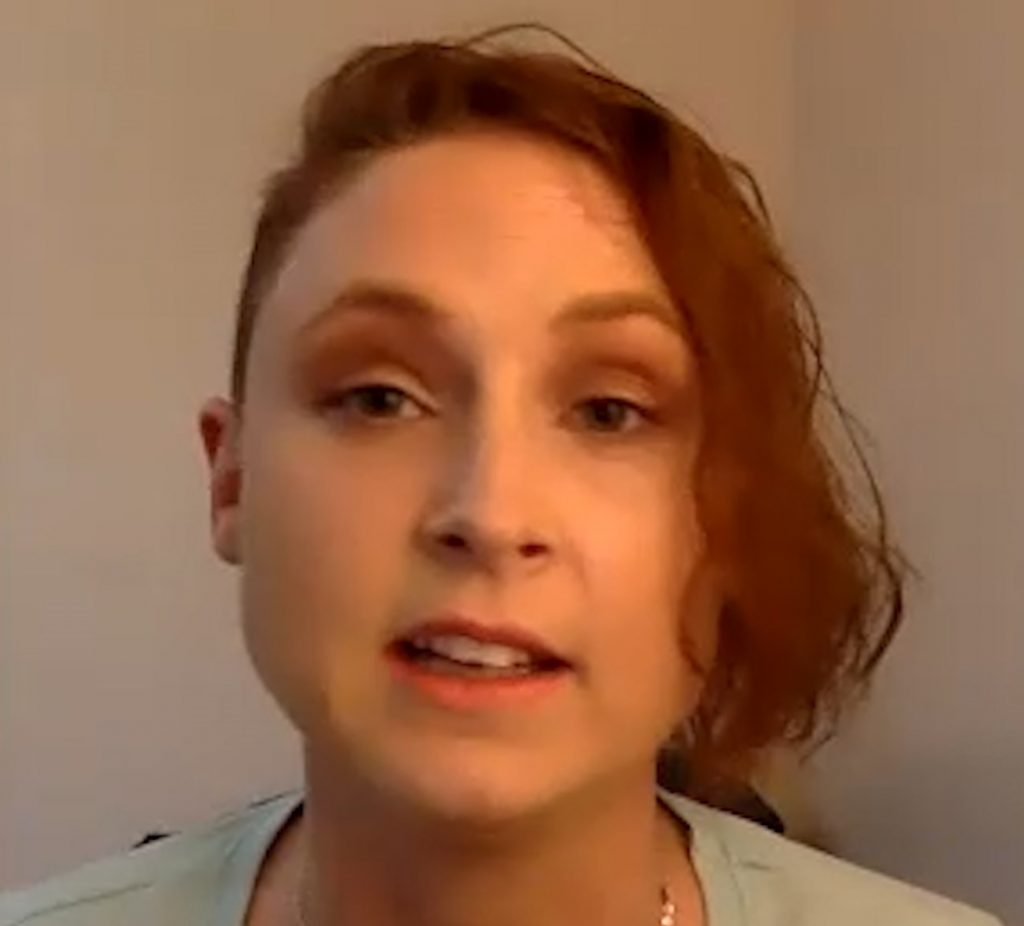
From growing up in small-town Iowa to becoming a military police officer Army Reservist, Holly Paulsen has seen and experienced much in her life. It wasn’t until she woke up still drunk after a night of drinking, that she decided to make changes in her life. Today, she is living her best life and helping other veterans get the help and resources they deserve.
In this podcast, Holly talks about:
- Following in her brother’s footsteps and joining the Army at age 17
- The military being its own world
- The peer pressure of being old enough to serve is old enough to drink
- Being deployed in Afghanistan when she turned 21
- Attributing early addictive behaviors to undiagnosed post-traumatic stress disorder (PTSD) and later to numb the pain from injuries sustained in the military
- The military saying, “Drink About It, Don’t Think About It”
- A friend planting the seed of sobriety
- April 1st is not a joke
- Being supportive by going with a friend to SMART meetings
- Years later, making the choice to attend SMART meetings and finding the Veterans & First Responders inaugural meeting
- How SMART fits into her life and co-facilitating meetings
- Telling others don’t struggle alone; ask for help
Additional resources:
Click here to find all of SMART Recovery’s podcasts
PLEASE NOTE BEFORE YOU COMMENT:
SMART Recovery welcomes comments on our blog posts—we enjoy hearing from you! In the interest of maintaining a respectful and safe community atmosphere, we ask that you adhere to the following guidelines when making or responding to others’ comments, regardless of your point of view. Thank you.
- Be kind in tone and intent.
- Be respectful in how you respond to opinions that are different than your own.
- Be brief and limit your comment to a maximum of 500 words.
- Be careful not to mention specific drug names.
- Be succinct in your descriptions, graphic details are not necessary.
- Be focused on the content of the blog post itself.
If you are interested in addiction recovery support, we encourage you to visit the SMART Recovery website.
IMPORTANT NOTE:
If you or someone you love is in great distress and considering self-harm, please call 911 for immediate help, or reach out to The National Suicide Prevention Hotline @ 800-273-8255, https://suicidepreventionlifeline.org/
We look forward to you joining the conversation!
*SMART Recovery reserves the right to not publish comments we consider outside our guidelines.*
Subscribe To Our Blog
Join our mailing list to receive the latest news and updates from the SMART Recovery Blog.
You have Successfully Subscribed!
I have been thinking about “psychological dependence” and “physical dependence” a lot lately. It seems to me our field is losing these concepts.
Psychological Dependence
Back in the late 1980’s counselors and patients alike would bring up “psychological dependence” from time to time. But over the last 20 years this concept seems to have slowly gone away. I can’t remember the last time I heard someone bring it up.
When is the last time you heard anyone talk about identifying “psychological dependence” as a feature of someone suffering from addiction illness (alcoholism, or a moderate to severe substance use disorder, etc.)?
Back in the 80’s, psychological dependence was taught to me by university academics, clinical professionals, and patients too. They all taught me that psychological dependence can be a feature of addiction illness. It was also taught to me as a developmental milestone in one’s progression in addiction illness. I was taught that when psychological dependence is present it indicates further progression. I was taught that psychological dependence is also a concern all on its own, given its particular association with relapse potential. For example, back then, patients with cocaine addiction would say, “It’s a mental thing.”
I paid particular attention because all 3 sources taught me about it. They all agreed. Over the last 20 years it seems this topic has been largely lost by academics, researchers, and clinicians trained more recently.
I wonder why.
Physical Dependence
Likewise, back in the late 1980’s, I was also taught about “physical dependence” by academics, clinicians, and patients. They all used this term and used it to mean the same thing: physiological adaptation to a drug such that if the drug was not taken withdrawal would begin. Moreover, physical dependence was taught to me as a developmental milestone in addiction illness. How so? I was taught (by university academics, clinical professionals, and patients) to determine if a patient is physically dependent, and if so then to find out how many weeks, months, or years the person has continuously taken the substance to avoid withdrawal. The idea was that both the presence of dependence, and the length of dependence, are each related to disease progression of addiction illness. The longer someone successfully maintained physical dependence without being “sick” or going into withdrawal, the worse their condition, and the more concerned we should be.
I paid particular attention to this information because all 3 sources taught me about it. They all agreed. But over the last 20 years this concept seems to have slowly gone away. I can’t remember the last time I heard someone bring it up. Over the last 20 years it seems this topic has been largely lost by both university academics and by more recently trained clinical professionals.
I wonder why.
Lessons From Frank Lloyd Wright
I recently came across a portion of an interview Frank Lloyd Wright gave. The film footage of this exchange was less than 3 minutes long (an excerpt from the full interview) but I found it fascinating. I have written out the exchange below. The questions are from the interviewer, and the answers are from Frank Lloyd Wright. To me this gives us a window into the topics above. And this exchange has captivated me.
How many companion students do you have?
There are about 60. They come from all over the world.
Do they….some of them have training?
Some have training.
But it doesn’t matter if they don’t?
And some don’t have training and are quite ready to develop without it.
Well, now what’s the minimum thing? They surely have to know some engineering.
No, because an engineer is only a rudimentary, undeveloped architect. They have to get the sense of the thing. The sense of structure. The sense of materials. They have to get the nature of the thing, which very few engineers know. An engineer is a “book man” as a rule. He gets everything out of books and formulas. And puts things together and takes them apart. Without ever knowing. Well, you know these characters who know all about everything and understand nothing. And you can say that of an engineer where architecture is concerned. He knows all about the architecture and knows nothing about it.
Where do you think they should get their roots from?
Nature study.
Terrain?
Not necessarily terrain. Nature with a capital “N”. The nature of this hand – what is it? The nature of the nail on the thumb. The nature of this. The nature of this little thing here. What’s the nature of that? That’s nature, in that sense, that he studies. And from that he develops by way of experience. Trying this. Trying that. Seeing it tried. Out of our failures – they tell us. And when we make a bad thing, we have to take it down or do it over, he learns. And he learns more, as I have done in my lifetime, from my mistakes – than I have ever learned from my successes.
And from a professor?
Well, I don’t know why professors are, any more than I know why the profession is.
To me, Frank Lloyd Wright is showing us the value of understanding the whole thing from a qualitative standpoint, rather than only relying on knowledge of certain facts.
